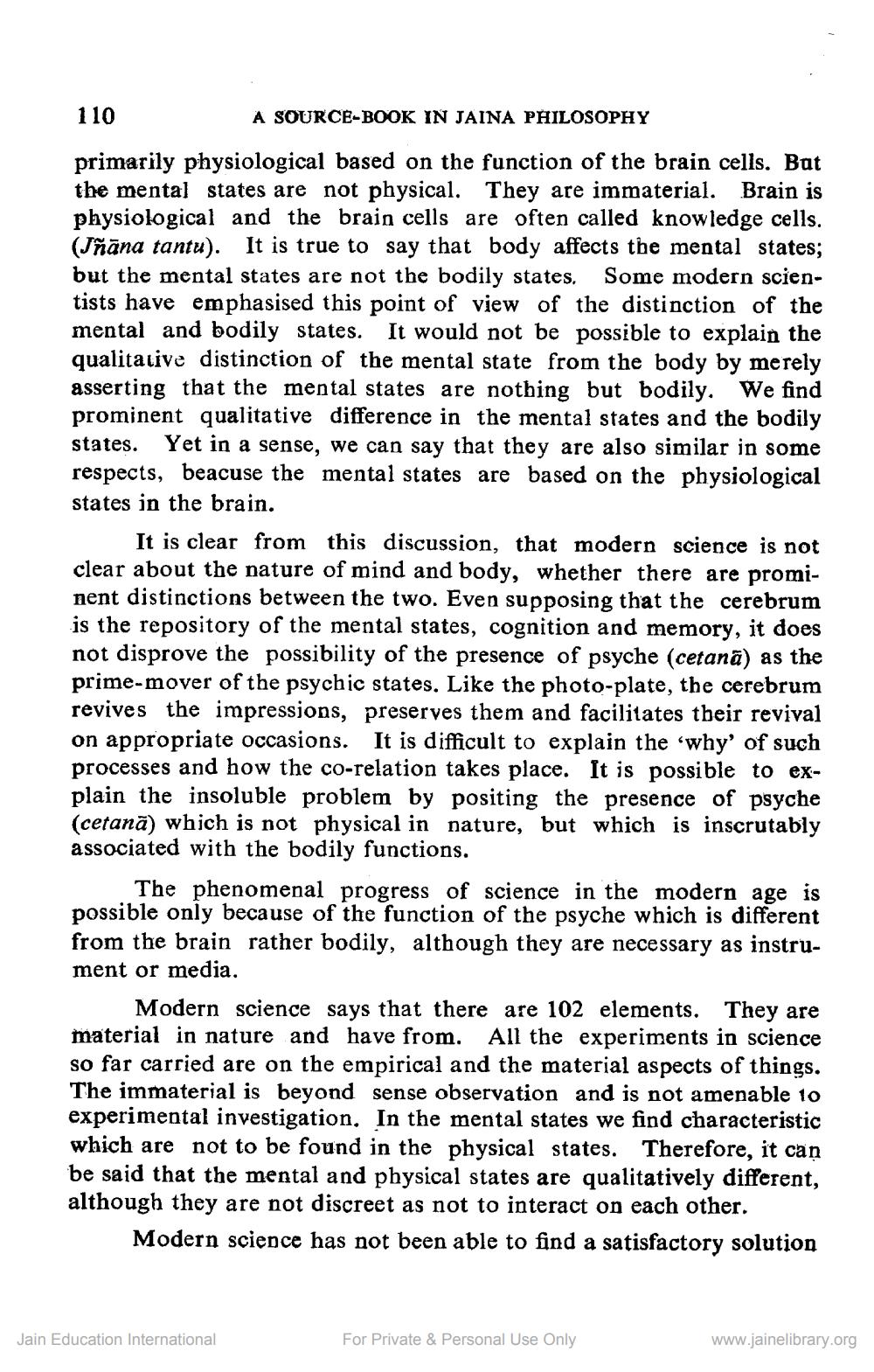________________
110
A SOURCE-BOOK IN JAINA PHILOSOPHY
primarily physiological based on the function of the brain cells. Bat the mental states are not physical. They are immaterial. Brain is physiological and the brain cells are often called knowledge cells. (Jñāna tantu). It is true to say that body affects the mental states; but the mental states are not the bodily states. Some modern scientists have emphasised this point of view of the distinction of the mental and bodily states. It would not be possible to explain the qualitative distinction of the mental state from the body by merely asserting that the mental states are nothing but bodily. We find prominent qualitative difference in the mental states and the bodily states. Yet in a sense, we can say that they are also similar in some respects, beacuse the mental states are based on the physiological states in the brain.
It is clear from this discussion, that modern science is not clear about the nature of mind and body, whether there are prominent distinctions between the two. Even supposing that the cerebrum is the repository of the mental states, cognition and memory, it does not disprove the possibility of the presence of psyche (cetanā) as the prime-mover of the psychic states. Like the photo-plate, the cerebrum revives the impressions, preserves them and facilitates their revival on appropriate occasions. It is difficult to explain the 'why' of such processes and how the co-relation takes place. It is possible to explain the insoluble problem by positing the presence of psyche (cetanā) which is not physical in nature, but which is inscrutably associated with the bodily functions.
The phenomenal progress of science in the modern age is possible only because of the function of the psyche which is different from the brain rather bodily, although they are necessary as instrument or media.
Modern science says that there are 102 elements. They are material in nature and have from. All the experiments in science so far carried are on the empirical and the material aspects of things. The immaterial is beyond sense observation and is not amenable 10 experimental investigation. In the mental states we find characteristic which are not to be found in the physical states. Therefore, it can be said that the mental and physical states are qualitatively different, although they are not discreet as not to interact on each other.
Modern science has not been able to find a satisfactory solution
Jain Education International
For Private & Personal Use Only
www.jainelibrary.org




